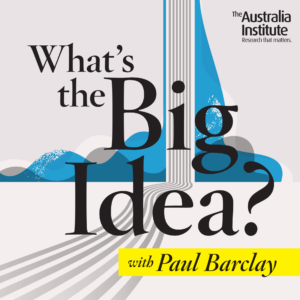
Wednesday 14 February is a big day in Indonesia. The nation goes to the polls, and a new President will be elected. A popular and successful President will be succeeded by one of three candidates, none of whom is especially popular or generates much enthusiasm among voters.
That is one of the reasons that a clear outcome is unlikely. It is also one of the reasons the result is so important: the new President will take Indonesia in a new direction.
The question is: what direction? For well over half a century, Indonesia has been a status quo power, treading a careful line between not making mistakes and not doing anything. Like Australia, it is so afraid of putting a foot wrong that it is reluctant to put a foot right. Since the end of Suharto’s era, Indonesia’s Presidents have prided themselves on their Javanese subtlety, allowing indirection to find direction out, to mix cultural metaphors.
This both reflects and appeals to the Indonesian political temperament. Conversation rather than debate largely defines the national political discourse. There have been five Western-style debates in the past couple of months, with no clear winner or loser. The viewers were as amused as they were bemused.
To appreciate Indonesia’s approach to its electoral Valentine’s Day, American and Australian models are irrelevant. National polling is interesting, but has little predictive utility because it is hard to capture the cultural conservatism and political inertia of rural Indonesia.
Appearance and reality merge in Indonesia politics, so a more useful model for understanding the dynamics of the political theatre is to see it as a post-modern version of the wayang—the traditional Indonesian puppet theatre.
Among the many wayang characters, there are three standouts: Rama, the king who represents authority; Sinta, Rama’s consort, who is the model of virtue; and Rawana, who is very wicked. Viewed through the lens of the wayang, the Indonesian election scenario becomes clearer.
There are three candidates for the Presidency. Anies Baswedan, the former governor of Jakarta, has been a key member of President Jokowi’s governing coalition for a decade. He is widely regarded as a political chameleon. Ganjar Pranowo is a former governor of central Java. He is polite and charming, important qualities in Indonesia, but is backed by Megawati Sukarnoputri (the daughter of Indonesia’s first president, Sukarno), a liability these days. And then there is Prabowo Subianto, the irascible 72-year-old former son-in-law of President Suharto. He enjoys considerable backing from Indonesia’s moneyed elite, especially among the ethnic Chinese community.
Now, this is where the wayang comes into its own. Prabowo is widely known, not much liked, but seen as a strong connection to both the past (Suharto) and the omnipresent military (he was a special forces general, and has been President Jokowi’s Defence Minister). He has authority, though is deficient perhaps in the respect domain. And more than that, his running mate Gibran Rakabuming Raka brings with him the aura of his father, Indonesia’s current President Jokowi. Jokowi’s popularity spills over onto his son, and therefore onto the Prabowo campaign. It’s a pretty strong endorsement.
So, very unusually, Prabowo is the political avatar of both Rama and Rawana—authority and toughness—while his running mate Gibran personifies Sinta. This may be the winning combination, an appropriately Indonesian take on Valentine’s Day. But this little fable does have a problem.
Indonesia’s electoral system requires a clear majority—over half the popular vote. If the Prabowo/Gibran team fails to win a majority, there will be a runoff in June, and if Anies and Ganjar were to run a unity ticket, they could end Prabowo’s dream.
And would a Prabowo win matter? Well, yes. Prabowo would bring a Trumpian quality to the Indonesian Presidency. Even with Gibran as a moderating influence, he would lend a more authoritarian image to Indonesia’s sometimes unsteady form of democracy, cracking down equally on dissidents and minorities. He would certainly pursue an uncompromising position on Indonesia’s fledgling local independence movements, especially in West Papua. He would be more assertive in defending Indonesia’s maritime boundary against Chinese encroachment in the South China Sea. To this end, he may well look to closer security ties with the US, Australia and Japan.
At the same time, he would want to maintain strong investment links with China, as Indonesia’s ASEAN partners have for the most part succeeded in doing. Yet a more assertive claim to ASEAN’s overall leadership may well introduce additional tensions into ASEAN, resulting in a measure of instability within the Southeast Asian region.
And what of Australia? Prabowo has a lingering affection for Australia, and has had close associations with generations of senior Australian military officers. After a decade of a benign President Jokowi, Australia seems unprepared for a more devious and less inhibited Indonesian President. While there may be opportunities for a revitalized defence and security relationship, Australia will need to conduct a significantly more engaged diplomacy with respect to Indonesia and the region more generally. A Prabowo presidency will certainly put Australia on its mettle.
Between the Lines Newsletter
The biggest stories and the best analysis from the team at the Australia Institute, delivered to your inbox every fortnight.
You might also like
Australia has power, why don’t we act like it? | Allan Behm
In a world of uncertainty, it is more important than ever for Australia to stop dismissing ourselves as a ‘middle power’ and start exerting our influence on the global stage.
All the way with the USA?
Despite demands from the hawks that the Australia Government fall in line with the United States over Iran, it’s not inevitable that Australia supports illegal American military intervention.
Empire strikes back
An imperial revival is occurring under the second Trump presidency.


